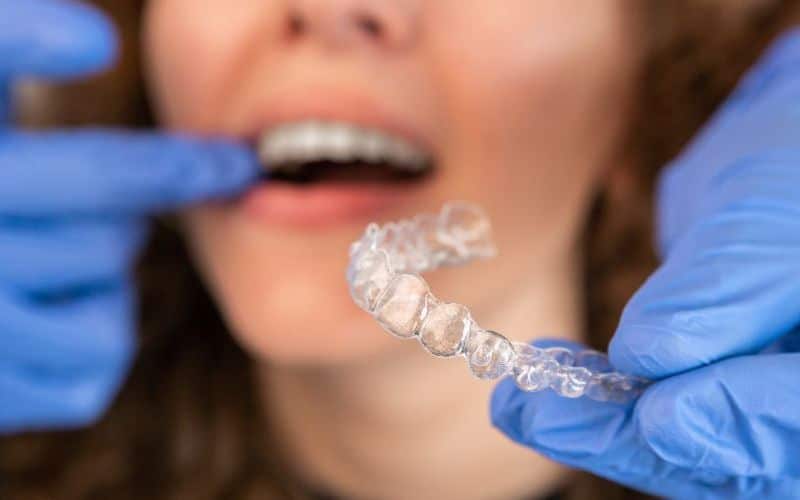
A long-term commitment, orthodontic treatment calls for perseverance and good mouth hygiene. However, what if you are hypothyroid? Can it impact your results or slow down your treatment?
A disorder known as hypothyroidism occurs when the thyroid gland produces insufficient amounts of hormones, which affects bone health, metabolism, and other bodily processes, including oral health.
It’s critical to comprehend the significance hypothyroidism plays if you’re receiving orthodontic treatment. Let’s see how braces, aligners, and general oral health can be impacted by hypothyroidism and what you can do to make sure your treatment goes well.
What Effect Does Hypothyroidism Have on Orthodontic Care?
There are various ways that hypothyroidism might affect orthodontic therapy, including:
1. Slower Tooth Movement
- Teeth are gradually moved into alignment using braces and aligners.
- They may migrate more slowly if bone remodeling is slowed down by low thyroid hormone levels.
2. A Higher Chance of Bone Loss
- Weak bones and less bone density are linked with hypothyroidism.
- This may compromise tooth stability and complicate orthodontic therapy.
3. Problems with Gum Health
- People who have hypothyroidism may have bleeding, edema, and inflammation of their gums.
- This can raise the risk of periodontal disease and make wearing braces uncomfortable.
4. Issues with Jaw and Bite
- Some people with hypothyroidism have misaligned bites due to structural changes in their jaws.
- The treatment plan may need to be modified by the Invisalign dentist in Allen.
Connection Between Hypothyroidism & Orthodontic Delays
A study published in the Journal of Clinical Endocrinology & Metabolism found that up to 20% of adults with hypothyroidism experience delayed bone remodeling. This directly impacts orthodontic treatment, as braces rely on efficient bone turnover to reposition teeth.
Without proper thyroid management, orthodontic progress may be slower, requiring longer treatment durations.
How To Manage Hypothyroidism During Orthodontic Treatment?
Maintain Proper Thyroid Medication
- Take your thyroid hormone replacement therapy (levothyroxine or other prescribed meds) as directed by your doctor.
- Well-regulated hormone levels help keep bone metabolism stable, supporting tooth movement.
Inform An Orthodontist
- Let an orthodontist know about your thyroid condition and medications.
- They can adjust your treatment plan, monitor progress, and prevent complications.
Follow a Bone-Healthy Diet
- Eat foods rich in calcium, vitamin D, and magnesium to support strong bones.
- Include dairy, leafy greens, nuts, and fish in your diet.
Prioritize Gum Health
- Brush and floss daily to prevent gum disease and inflammation.
- Use an antibacterial mouthwash to reduce bacteria buildup.
Attend Timely Dental Checkups
- Dentist should monitor your teeth, gums, and bone health throughout treatment.
- Early detection of any issues can help prevent delays.
In the end, the answer is yes! Having hypothyroidism doesn’t mean you can’t get orthodontic treatment—but it does require extra care and monitoring.
By managing your thyroid levels, maintaining good oral hygiene, and working closely with a dentist, you can still achieve a healthy, well-aligned smile. While treatment may take a bit longer than usual, the results will be worth it.
If you have hypothyroidism and are considering braces or clear aligners, schedule a consultation with our Invisalign dentist to discuss the best treatment approach for your requirements.









